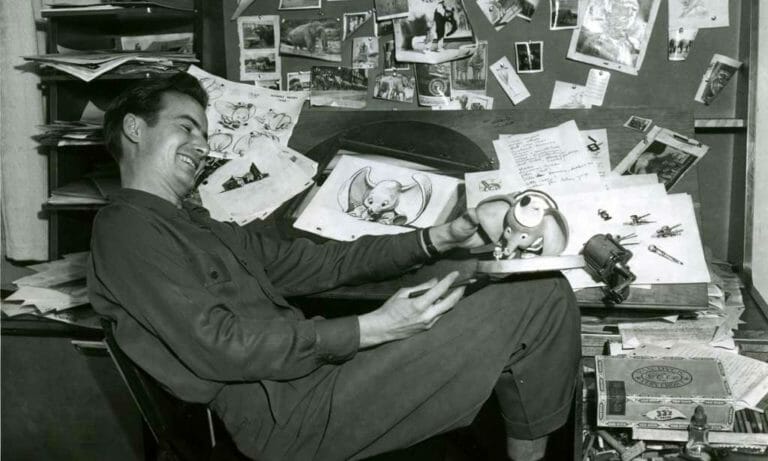By Monty Mickelson · May 19, 2015

Ask any comedy writer what the most impotant thing – TIMING! But seriously, ask a veteran comedy writer what he or she regards as the single most important decision they need to make before embarking on a comedy script and they will probably say “the situation," or The Premise. A great premise, however, is not synonymous with structure, with plot points or character arcs. A great premise is more like the catalyst in a chemistry experiment – that which makes stuff explode. A great premise is like that mixer machine at Home Depot. Put swirls of paint in a can and you get swirly walls. Give the whole mess a ride on the mixer and you have…cohesion. Sea foam green. Whatever.
My point here is that there is an essential, symbiotic relationship between great premises and great comedies. There are exceptions, but you very seldom see a great premise fail as a film, and there are relatively few sow’s-ear premises that become silk-purse movies. Try this exercise: Take a look at The American Film Institute’s list of the greatest American comedies, AFI’s 100 Years, 100 Laughs. Generally speaking, the better the premise, the higher the ranking.
At No. 1 we have Some Like It Hot, featuring what I would classify as a solid, B+ grade premise that was crafted (by Billy Wilder and I.A.L. Diamond) into a delightful, classic comedy script. Joe and Jerry are forced to go on the lam when they witness the St. Valentines’ Day Massacre. The sanctuary they choose is to dress in drag and join an all-girl band in Florida. Romance and hilarity ensue.
Moving down the list (and closer to my waking memory), you have Tootsie, with its near bullet-proof Grade A comedy premise: What would be the most radical solution to an actor’s chronic unemployment? And just how long could he sustain his charade? Ghostbusters (AFI rank No. 28), and Groundhog Day (No. 34) feature rock-solid, front-to-back great comedy premises. The direction, and the casting of these films is outstanding, but they could both be fully recast, handed to different directors and still be huge hits.
Leaving American movies for a moment, the Brits have introduced a raft of astute-premise comedies, films that could swap out their casts and still slay audiences. My UK-derived favorites include Sean of the Dead (best zombie premise ever), The Full Monty (not just because I am also a Monty), and John Cleese’s wonderful A Fish Called Wanda (No. 21 on the AFI rankings). Harold Ramis’ American remake of Bedazzled also began its creative life as a great British premise.
But what about the great comedies with weaker, or more pedestrian premises? A lot of premise sins can be surmounted with great dialogue and great performances. One that comes to mind is The Hangover, which offers what I regard as a middling, familiar premise – a Vegas bachelor party weekend. Each Hangover character (with the exception of Zach Galifianakis’ Alan) is an archetype, but writers Jon Lucas and Scott Moore (and others uncredited) have a knack for creating fresh and inventive obsctacles and perils.
Judd Apatow’s marvelous Superbad is a similar example of a relatively mundane premise that yielded a banquet of comedic delights – mostly owing to its razor-sharp dialogue, spot-on casting, and more of those inventive obstacles and perils. Other outstanding comedies I would group into this mundane-premise class include Alexander Payne’s Sideways (adapted from the novel by Rex Pickett), and Barry Levinson’s masterpiece, Diner.
Premise can be a double-edeged sword, that is, it cuts both ways. Some writers start with what I might regard as a terrific (or at least highly promising) premise and fail in the execution. Films I would lump under the good-premise, bad-movie class include Steven Spielberg’s 1941 (A woeful muddle that could have been brilliant in the hands of – Dare I say it? – a different director .), A Million Ways to Die in the West (Seth MacFarlane, stay behind the camera) and Woody Allen’s Magic in the Moonlight – featuring a premise with equal measures of intrigue, humor and romance, almost none of which made it to the screen.
But as I stated, these misfires are rare exceptions. You seldom see a great comedy premise fail as a film. Usually a great premise becomes a great instigator for the entire collaborative process; the writing, the direction, and the performances of the cast.